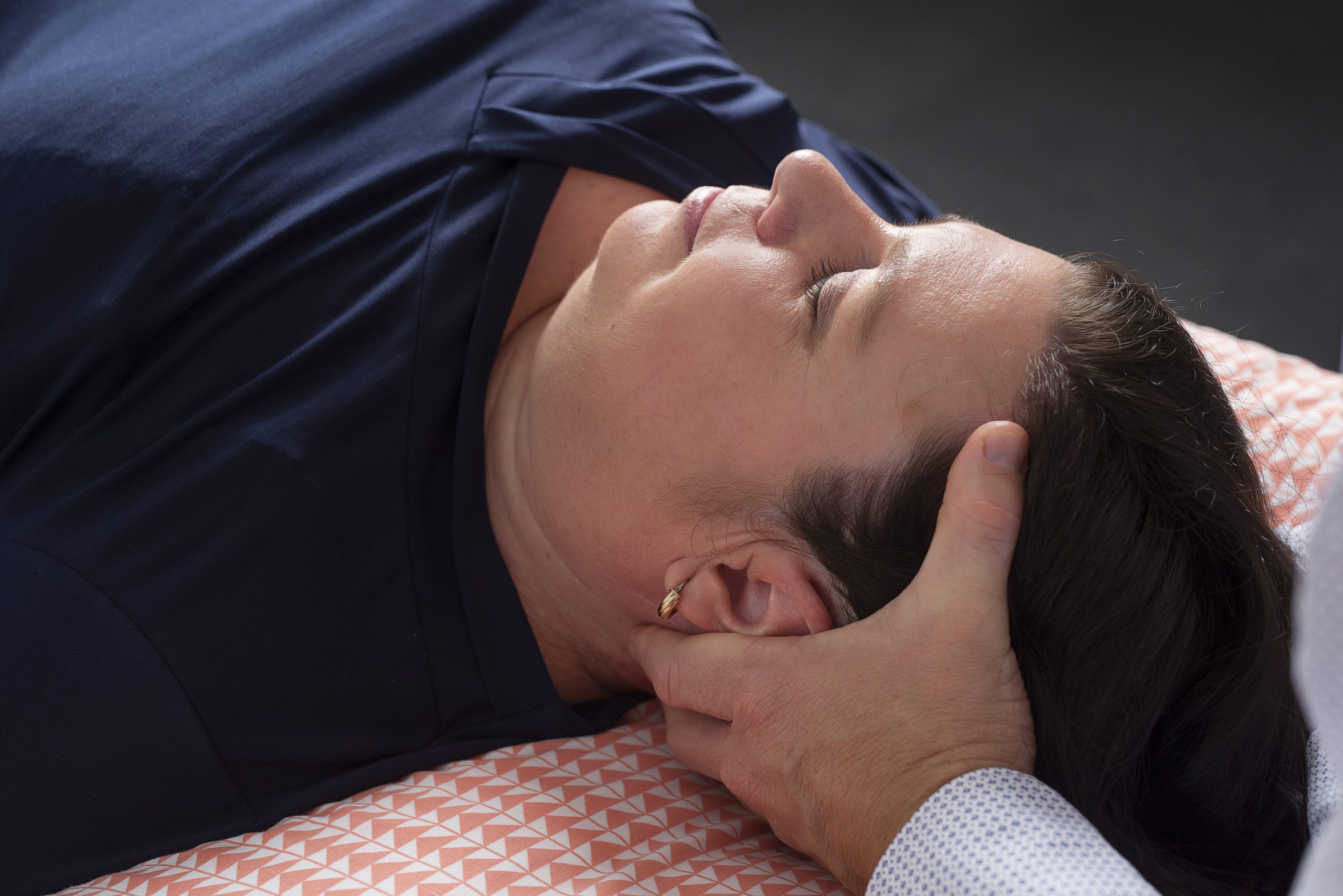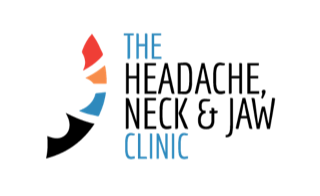Tension Headache Treatment
The physiotherapists at the Headache, Neck and Jaw Clinic are trained to provide treatment for acute, recurrent and chronic tension headaches.

Almost everyone experiences tension headaches from time to time, but what starts off as a minor inconvenience can turn into a debilitating problem if you experience them regularly.
Finding relief for tension headaches can be challenging, and we often meet patients who have sought treatment before without success. That sense of failure can leave you feeling isolated and frustrated, not to mention still in pain with recurring headaches.
The team at the Headache, Neck and Jaw Clinic understands how frustrating finding relief can be. That’s why we provide physiotherapy that’s effective in treating acute and chronic tension type headaches, relieving pain and other symptoms within the first few sessions.
Contact us to book your initial assessment today with our tension headache specialists. We’ll discuss your symptoms and history to provide short and long-term relief from tension headaches.


What is a Tension Headache?
A tension headache is the most common type of headache. It’s characterised by a feeling of pain and pressure, often described as having a band around your head. Most people will experience a tension headache at some point in their lives, and while one-off headaches are common, you may also suffer from chronic headaches that can seriously impact your day to day life.
The exact cause of tension headaches is still being researched, but they are often associated with neck strain, eye strain, stress and anxiety, dehydration, caffeine and the overuse of pain-relief medication.
Common Symptoms of Tension Headaches
- Mild to moderate head pain
- A feeling of pressure in your head
- Feeling like the sides of your head are being squeezed
- Sensitivity to light
- Sensitivity to sound
- Soreness in your neck and shoulders
Tension headache triggers
For some people, tension headaches are more than just an inconvenience. They can get in the way of work, interrupt study, and force you to miss out on family events or social gatherings. Identifying your personal triggers can help you manage tension headaches, or even reduce their frequency and severity. Some things you can do to recognise your triggers include:
- Track daily habits: record your sleep schedule, diet, water intake, and stress levels.
- Note physical factors: pay attention to poor posture or excessive screen time.
- Identify patterns: look for recurring themes that correlate with the onset of your headaches to identify any specific triggers.

Other Types of Headaches
Understanding your headache means first understanding where it hurts and what it feels like. This information will help us determine exactly what type of headache you might be experiencing. But you might be experiencing multiple types of headaches or migraines at once. Some other headaches include:
Migraine with/without Aura (sensory disturbances)
Menstrual Migraine
Cervicogenic Headaches
Cyclic Vomiting Migraine
Trigeminal Cephalgia/Neuralgia
Concussion-related Headaches
Cluster Headaches
Hemicrania Continua

Treatment Options for Tension Headaches
Usually, mild tension headaches will go away on their own with rest and simple home remedies. Addressing common triggers can help, such as drinking water if you’re dehydrated or reducing stress with relaxation techniques.
Some people take over-the-counter painkillers to treat tension headaches. While these can be effective in the short-term, overusing medications can increase the frequency and severity of your headaches and make them less responsive to treatment in the future.
Here at the Head, Neck, and Jaw Clinic, we focus on non-pharmeceutical physiotherapy treatments to help you find lasting relief.
How We Can Help With Tension Headaches
Everybody’s journey through treatment is different, which is why we start all our initial appointments by listening. We want to truly understand what you need from treatment and why, so we’ll ask everything from how they affect your daily life, to what treatments you’ve already tried.
Once we have a good understanding, we’ll explain our approach to treatment. Our physiotherapists focus less on mobility exercises and massage and more on the nervous system itself. We look for which nerves are involved in causing your tension headaches, assessing the neural pathways before retraining how the brain reacts to them to relieve tension and reduce pain. It all starts with the Watson Headache Approach.
The Watson Headache Approach Explained
Even if you’ve previously tried physiotherapy, we could still be able to help. Each of our physiotherapists is trained in the Watson Headache® Approach, which aims to retrain the way your nervous system interprets signals from your body, reducing pain and muscle tension.
Our two main goals for treating headaches with this method are:
- Treating symptoms to get you feeling better now
- Treating the root cause through neural reprogramming, which keeps you pain-free in the long term
If you have a headache during your session, we target the C2 segment to try to ease your current symptoms. If your pain decreases during treatment, it’s a strong sign your neck is involved.

If you're not experiencing a headache at the time, we can try to reproduce your typical headache symptoms before resolving them. It might sound scary to intentionally trigger a headache, but if we can do it reliably, it confirms that neural sensitivity is at play and that you’re in the right place.
What To Expect From Your Assessment
Comprehensive Examination
We begin by discussing your symptoms and history to see how your migraines occur and how they affect your life.
Hands-On Assessment
Our physiotherapists will perform a hands-on assessment to identify the source of pain and develop a treatment plan.
Symptom Relief
Your treatment plan will provide relief from pain, fatigue, and other symptoms to help you get back to normal activities.
Patient Education
We can answer any questions and provide exercises you can do to reduce the frequency and severity of menstrual migraines.
If you’re seeing positive results, we continue treatment. But we don’t want to waste your time, and dealing with chronic headaches is stressful enough without adding in worries about costs. That’s why if there’s no change after a few sessions, we’ll be honest and help you explore the next steps.
Reach Out To Us!
Get in touch with us today for more information on our services or to make an appointment with our friendly team.
Ready To Book Online?
Use our online portal to book your appointment today! Our physiotherapists can assess your headaches and provide symptom relief in just a few sessions.

Frequently Asked Questions
A tension headache might only last around half an hour, but it can stick around for up to a week. And while movement normally doesn’t make them worse, the pain may increase over the course of the day.
Getting daily pressure in your head can be a sign of a tension headache. While they are a common type of headache, experiencing them regularly can be debilitating. Consider keeping a headache diary to track symptoms, and seeking treatment.
While medication can temporarily reduce pain, physiotherapy works to address the root cause of your symptoms. By restoring proper function to the upper cervical spine and calming nerve sensitivity, physiotherapy aims for long-term relief, fewer flare-ups, and less reliance on medication over time.
Yes. The Watson Headache Approach is a safe, evidence-based method for assessing and treating headaches and migraines, with no high-velocity manipulations. All techniques are gentle and tailored to your symptoms and tolerance.
